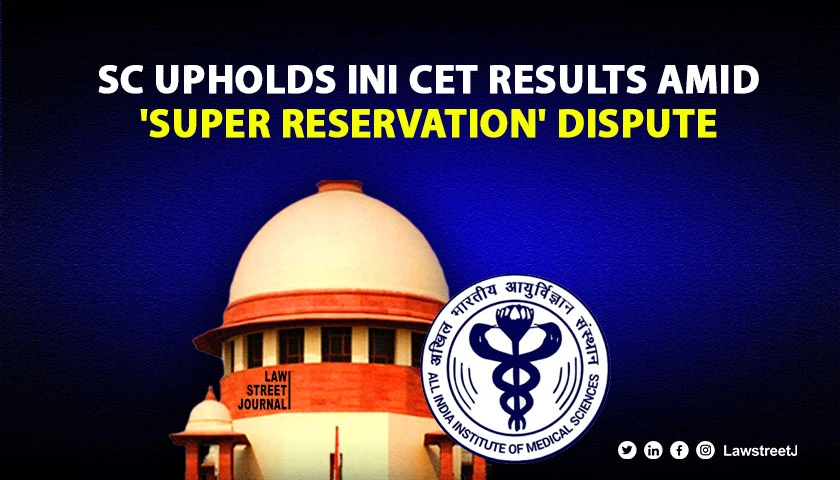NEW DELHI: The Supreme Court has refused to suspend the declaration of results of seat allocations in post graduate courses in the Institute of National Importance Combined Entrance Test (INI CET), 2024 examinations.
A bench of Chief Justice of India D Y Chandrachud and Justices J B Pardiwala and Manoj Misra rejected the plea but agreed to examine petitions filed by Dr Sukriti Nanda M and others and scheduled it for consideration on August 20.
The petitioners were represented by senior advocate P B Suresh and advocate Vipin Nair and the AIIMS by advocate Dushyant Parashar.
They argued that though the Supreme Court in AIIMS’ Students Union vs AIIMS & Ors (2002) and Saurabh Chaudri & Ors vs Union of India & Ors (2003) upheld the validity ‘institutional preference’, it was not meant to be at the cost of merit or promote mediocracy.
The petitioners were aggrieved with the manner of implementation of 50% institutional preference quota.
Also Read: SC directs NTA to publish results of students of NEET-UG by Sat noon [Read Order]
They contended the announcement of results of seat allocations could be halted for two days.
AIIMS counsel, however, any break on allocations of seat would have serious repercussions on admissions in next years, while hundreds of doctors were waiting for the results.
The petitioners on their part questioned validity of the practice of the All India Institute of Medical Sciences of providing a ‘super reservation’ in the garb of ‘institutional preference’ for postgraduate admission.
Their plea claimed the practice and manner of allocating seats on the basis of ‘institutional preference’, currently being done by the various institutes that form a part of the INICET, directly impinged on and violates the petitioner’s fundamental rights as guaranteed by Articles 14 and 19(1)(g) of the Constitution.
"The petitioner was being severely disadvantaged by being treated unequally without any intelligible differentia which has a direct consequence of the petitioner not being able to pursue her professional goals solely due to the respondents’ preferential treatment of those persons who are far less deserving than her," the plea said.
The present case has resulted, in extremely meritorious and deserving students who have a demonstrated acumen and aptitude to provide the most basic human requirement of healthcare, will lose out to complacent and mediocre candidates, the plea claimed.
"Such a practice does not affect a person or even the petitioner in this case at an individual level but, in fact, prejudicially affects the country as a whole and serves to weaken an already stressed healthcare system," it added.
They asked the court to issue directions for framing appropriate rules to ensure that the ‘institutional preference’ is used as a mechanism to give preference to eligible candidates only when there is a distinct similarity between
two or more candidates.

















